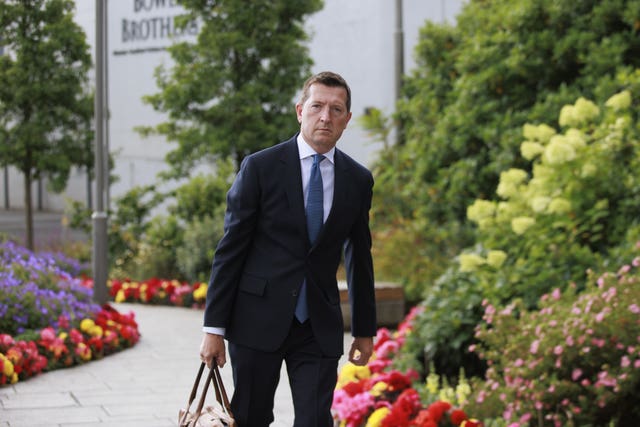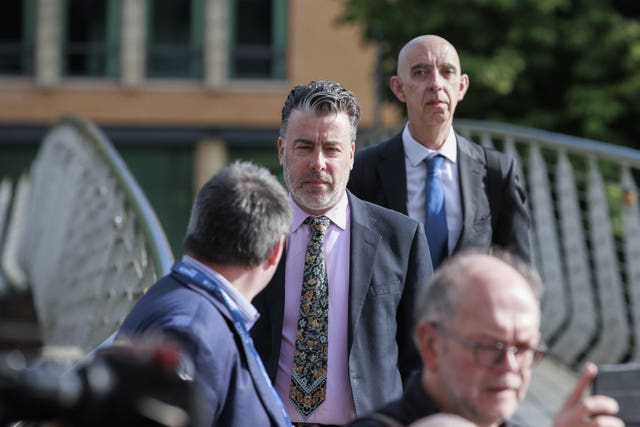The Omagh Bombing Inquiry is seeking “clear written agreements” with the Irish government over co-operation.
This would be to include access to materials held in the Republic of Ireland and witnesses from that jurisdiction.
The first public hearing of the inquiry took place on Tuesday at the Strule Arts Centre in Omagh, Northern Ireland.

It has been contended that the terrorists prepared the bomb in the Republic of Ireland and also fled back across the border after planting it in Omagh on August 15 1998.
The inquiry into the atrocity was ordered last year by former secretary of state Chris Heaton-Harris following a legal challenge by a bereaved family.
High Court judge Mr Justice Horner, in a judgment, directly recommended that the UK Government carry out an investigation into alleged security failings in the lead-up to the atrocity.
While having no jurisdiction to order the Irish government to act on the matter, the judge urged authorities there to establish their own probe in light of his findings.
Earlier this month, the Irish cabinet formally agreed to provide assistance to the inquiry.
Two senior officials from Ireland’s Department of Foreign Affairs attended the inquiry hearing on Tuesday.

He said inquiry staff have held a number of meetings with Irish government officials and the Irish police, and commended “positive discussions”.
“The discussions that have taken place have been positive, and during them, the government of Ireland has expressed a strong desire to co-operate fully with the inquiry,” Mr Greaney said.
“The challenge is to see the engagement that has occurred to date translated to meaningful engagement with the inquiry’s processes, both leading up to and during the course of inquiries or evidence hearings.
“We emphasise that the inquiry team does not doubt that the government of Ireland has a strong commitment to achieving that vital aim.”
He added: “The intention of the inquiry is to ensure that those discussions now move into a practical phase in which clear written agreements are put in place, to make certain that the inquiry has full access to any potentially relevant materials held by the state authorities in the Republic of Ireland, and that it has the ability to obtain statements and call witnesses to attend the inquiry, to give evidence in person.”






